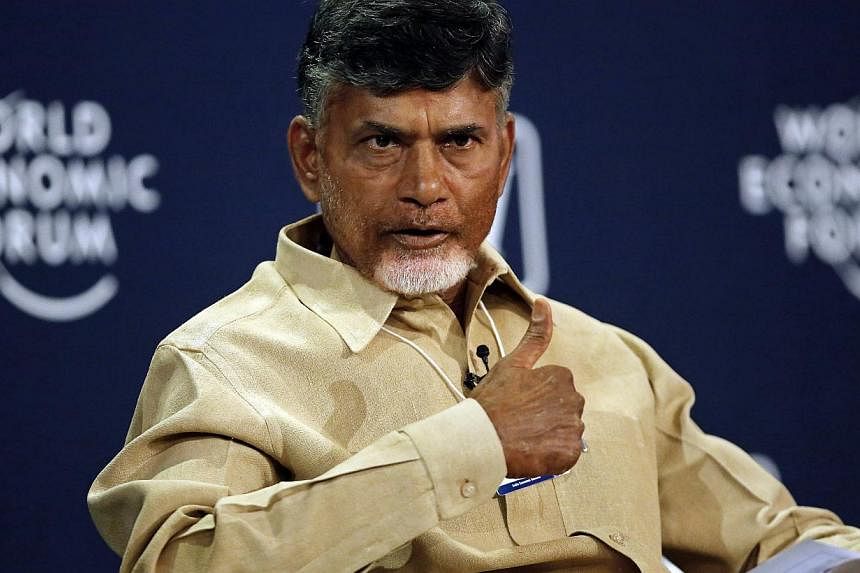
When post Independence India planned its first major new city, they got in a French architect to do the planning.
Le Corbusier's Chandigarh, with its wide boulevards and neat symmetry, remains one of India's most liveable settlements, and has the highest per capita income of the nation's states and federal territories, out-performing more recent cities such as Greater Noida and Gurgaon.
The next Indian city that could aspire to Chandigarh's scale and success may well be designed by Singaporeans.
Monday night's announcement that International Enterprise Singapore will partner the Andhra Pradesh state government to build the southern state a brand new capital promises to be an exciting enterprise for both Singapore and India, and has the potential to take their bilateral relationship into an entirely new dimension.
It also wipes out, for Singapore, the record of a significant mis-step it made nine years ago when Changi Airport unexpectedly pulled out of the consortium bidding to build the new international airport in New Delhi. Changi's decision was received poorly by New Delhi, where the Manmohan Singh government was keen to see the Singapore airport operator undertake the project, which finally was built on schedule by a group that included Malaysian Airports Bhd.
Unlike that decision - partly caused by the Indian government making late changes to the deliverables, which Changi judged to be unrealistic - the comfort levels on this deal are much higher.
For one thing, the Republic and Andhra's dynamic Chief Minister N Chandrababu Naidu are well-known to each other. Indeed, such is the scale of his ambition that Singaporean leaders have recently needed to caution Mr Naidu, who was here last month, to keep his expectations realistic.
Mr Naidu comes with an impressive track record. Long before Mr Narendra Modi burst on the investment horizon as the development-oriented chief minister of Gujarat state, Mr Naidu was known for his efficient administration of Andhra Pradesh, his penchant for e-governance and his magnificent obsession with the benefits of using information technology in government and for job creation.
During his decade-long tenure, which started in 1995, the streets of Andhra Pradesh began to be cleaned up, litterbugs were fined and the state capital, Hyderabad, began acquiring the moniker Cyberabad after Mr Naidu flew in Microsoft founder Bill Gates and named a building after him. Singapore companies such as Ascendas and RSP Architects did lucrative business in the state.
Mr Naidu lost power after successive droughts in his state led to suicides by some poor farmers, helping the Congress Party in opposition to entice votes by casting him as an elitist, uncaring, urban-oriented figure.
Mr Naidu is also on the same side politically as Mr Modi and his Bharatiya Janata Party. In national polls that ended in May and pitched Mr Modi to power, the BJP and Mr Naidu's Telugu Desam Party won 17 of the 25 parliamentary seats from the state, with the Telugu Desam alone winning 15. The alliance, and Mr Naidu's links with Mr Modi, who has promised to cooperate with all state governments, will ensure that any creases that develop between the federal and provincial governments can be easily ironed out.
There is a third, important element. Unlike in neighbouring Tamil Nadu, where the political rivalry between the ruling AIADMK and the opposition DMK is deeply bitter, Andhra chief ministers have a record of not undoing the good work done by predecessors. This means that should Mr Naidu lose power in the next state polls due in 2019, there is a good chance that the next chief minister will not seek to undo or unwind any of the plans put in place by him.
Fourthly, Andhras are highly gifted people. Like Singaporeans, there is much emphasis among them on learning math and science. Household expenditure data from India suggests that Andhras are among the highest spenders on education. This is the reason Andhra family names such as Raju, Reddy, Naidu and Prasad show up in large numbers in the ranks of investment banks and technology institutions such as NASA and Google. Indeed, Microsoft's current chief executive, Satya Nadella, is an Andhran.
The project, which will see Singapore planting its flag metaphorically in the heart of India, bodes well for bilateral ties, which are excellent. The timing is perfect as well; India is projected to soon pick up Asia's growth baton as the biggest economies of the region, China and Japan, slow or slide. Combined with Mr Modi's stated intention to build several smart cities in India, Singapore design companies and a host of other service providers can look for a rich harvest of work in Asia's third biggest economy. Already, many condominium developments in India boast 'Singapore-style living'.
Strategically, Mr Modi has indicated his intention to work closely with Singapore. This is welcome news for South-east Asia, which has always looked askance at India's reluctance to adopt a bigger strategic profile in the region.
Two decades ago, then Prime Minister Goh Chok Tong spoke of sparking a 'mild India fever'. What he could not have guessed then was that he would, instead, spark a bigger Singapore fever in India.

